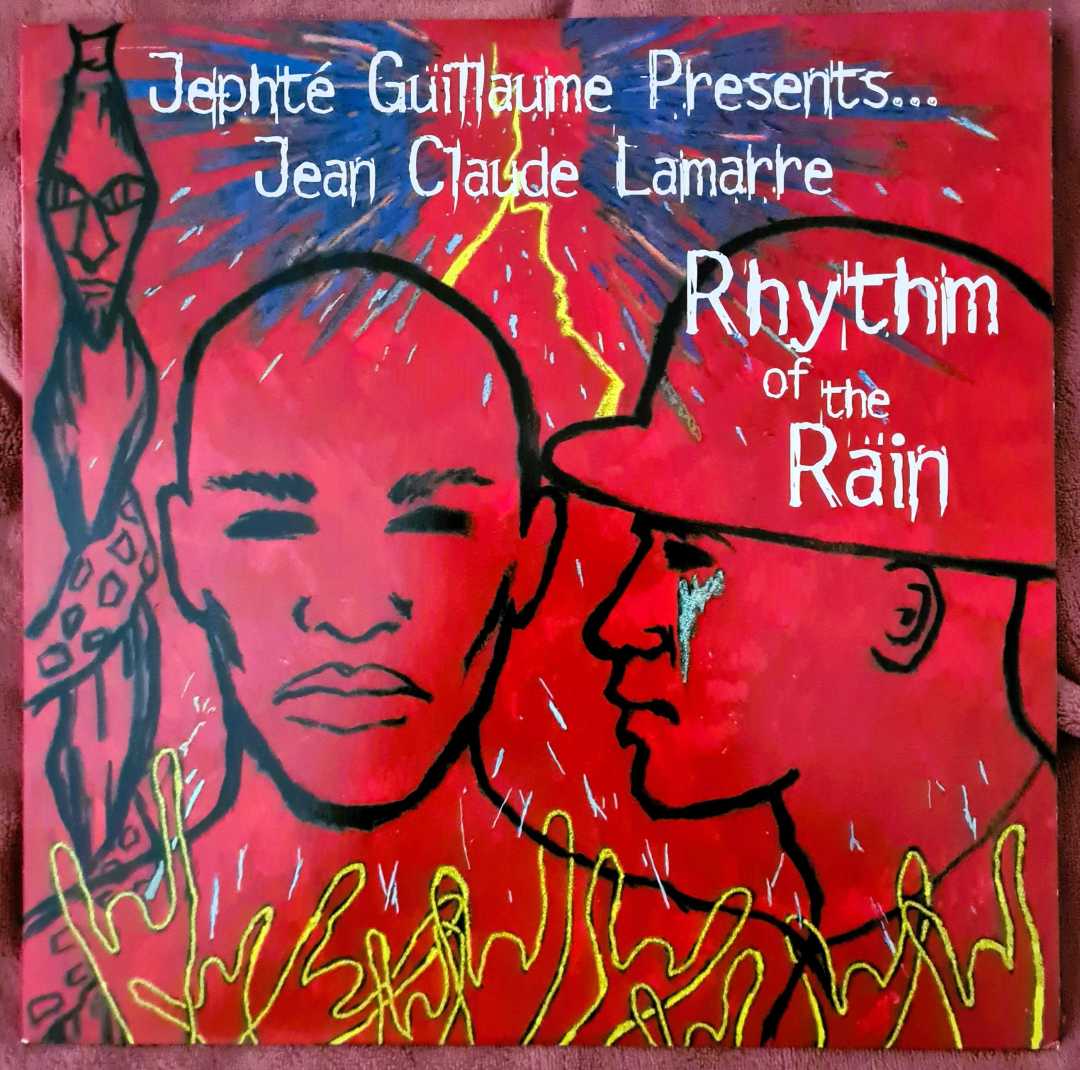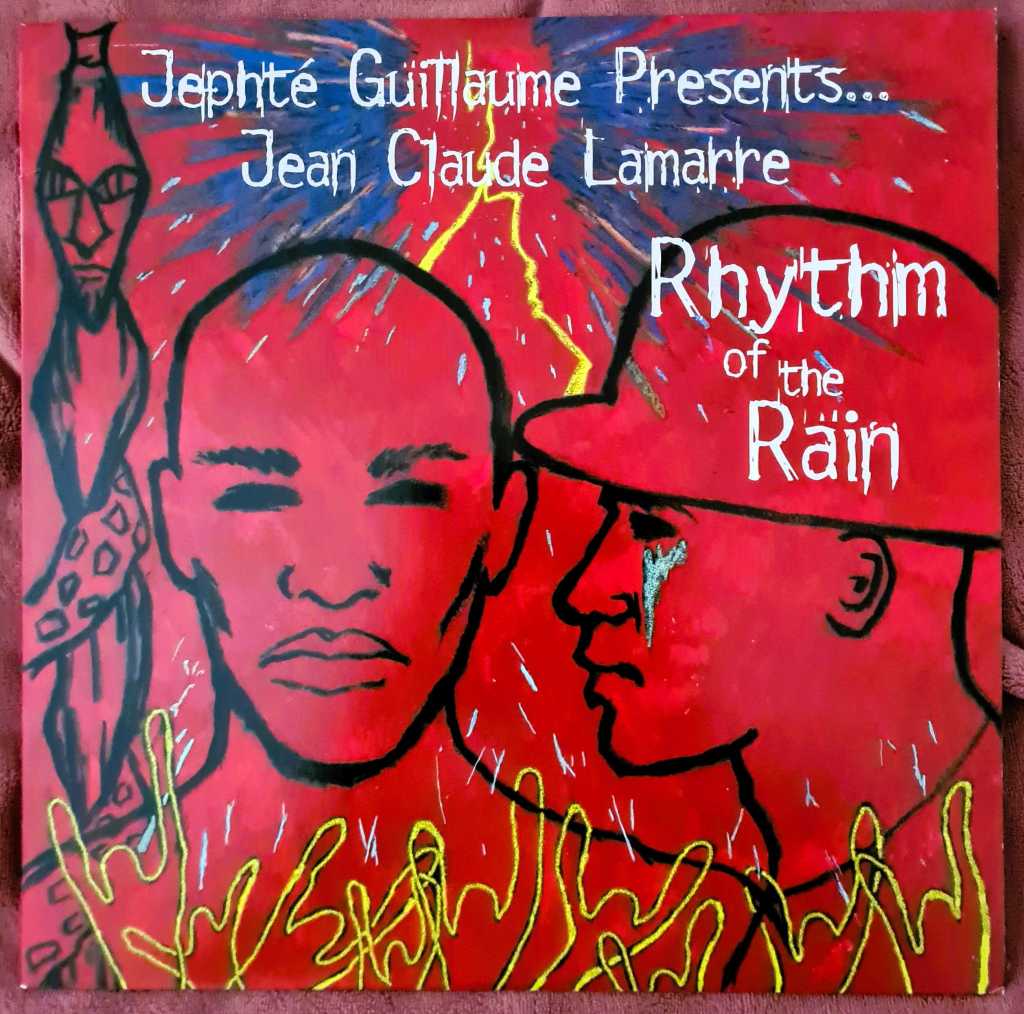
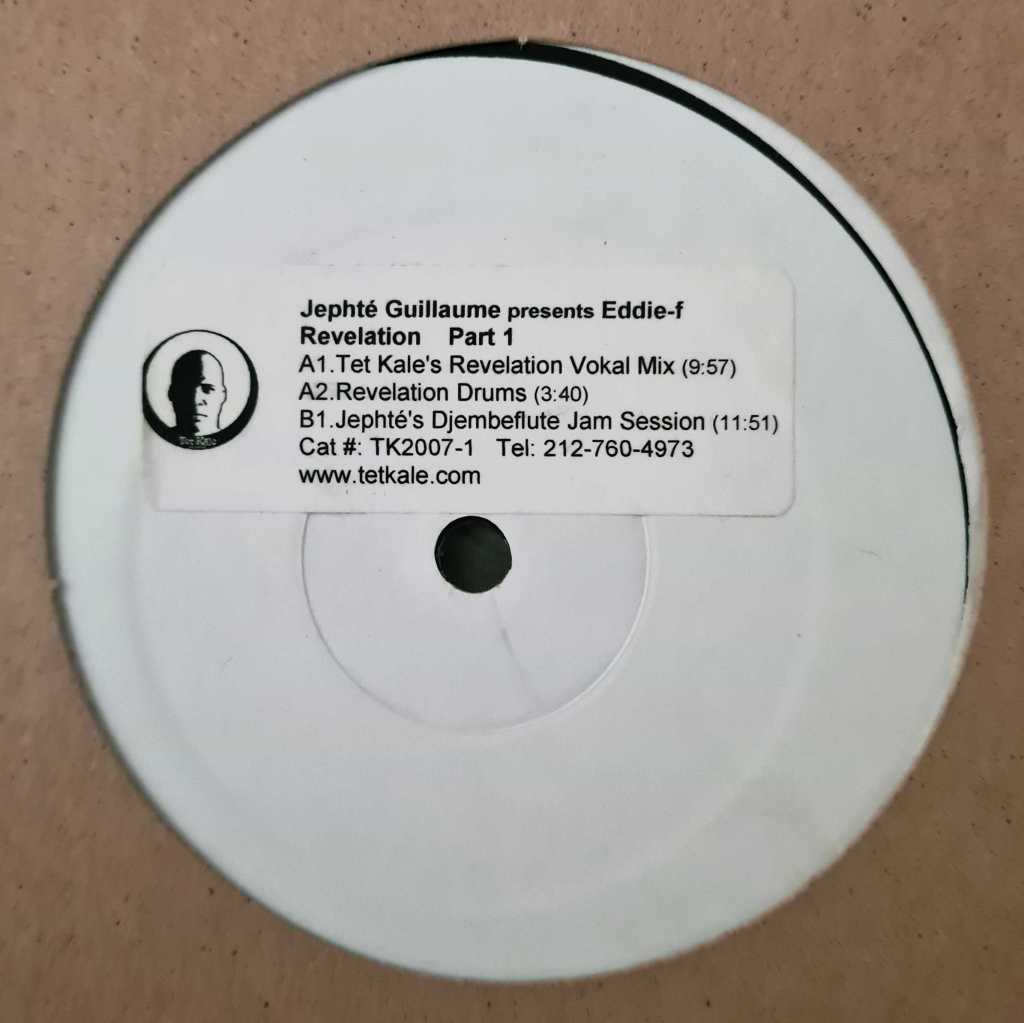
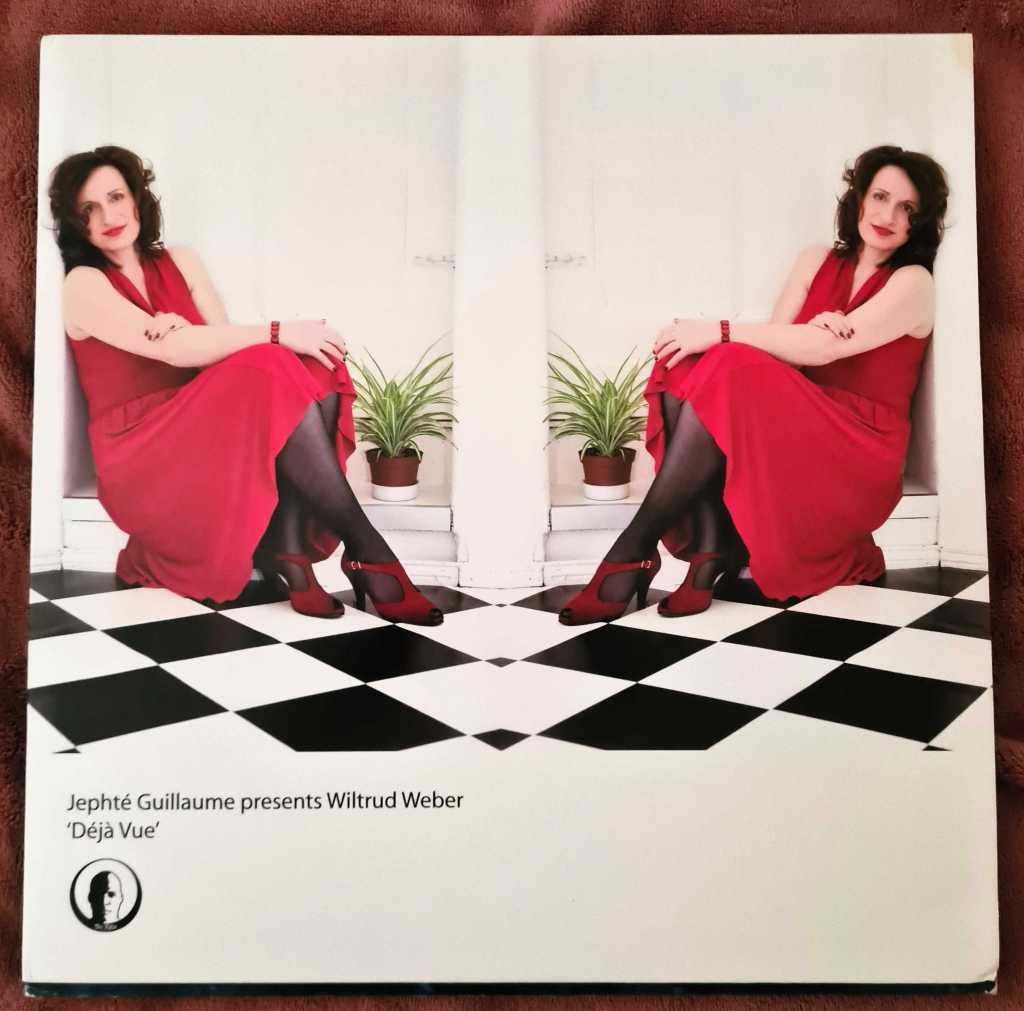
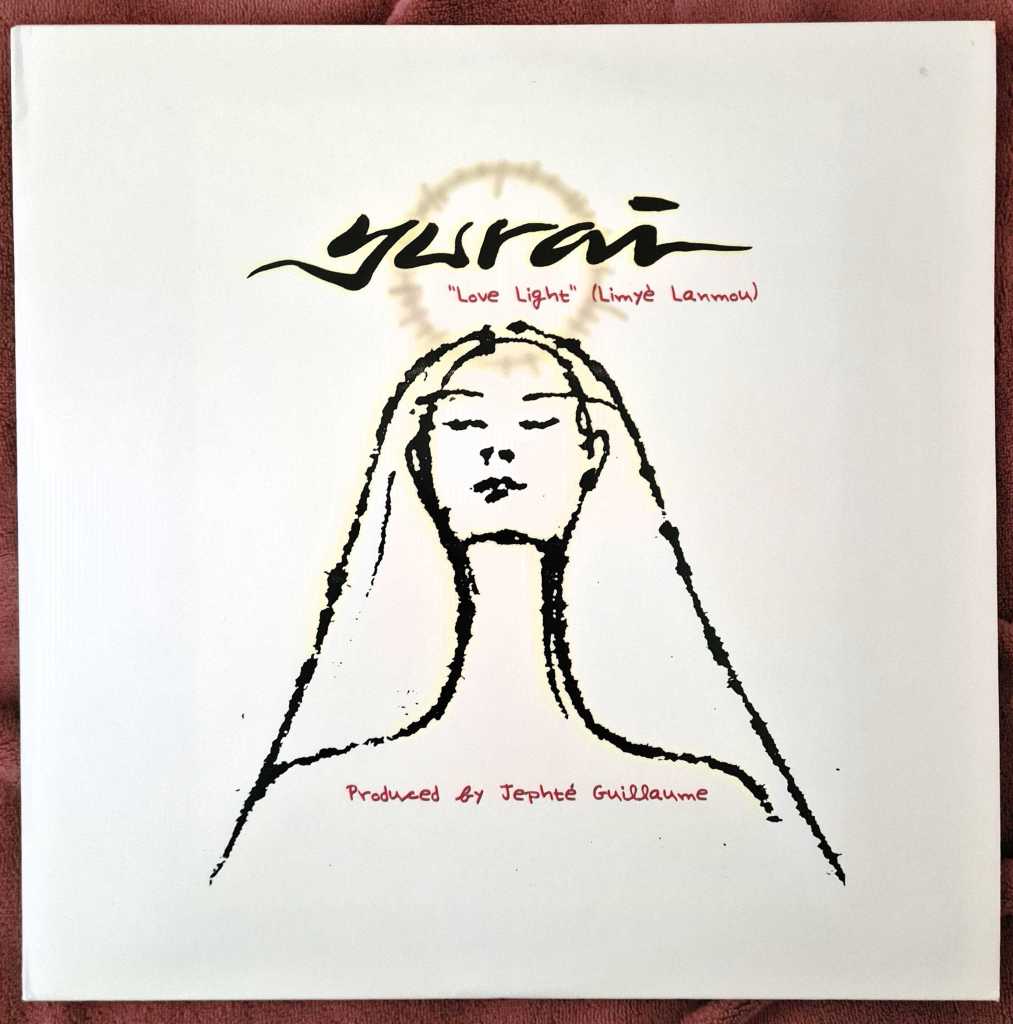
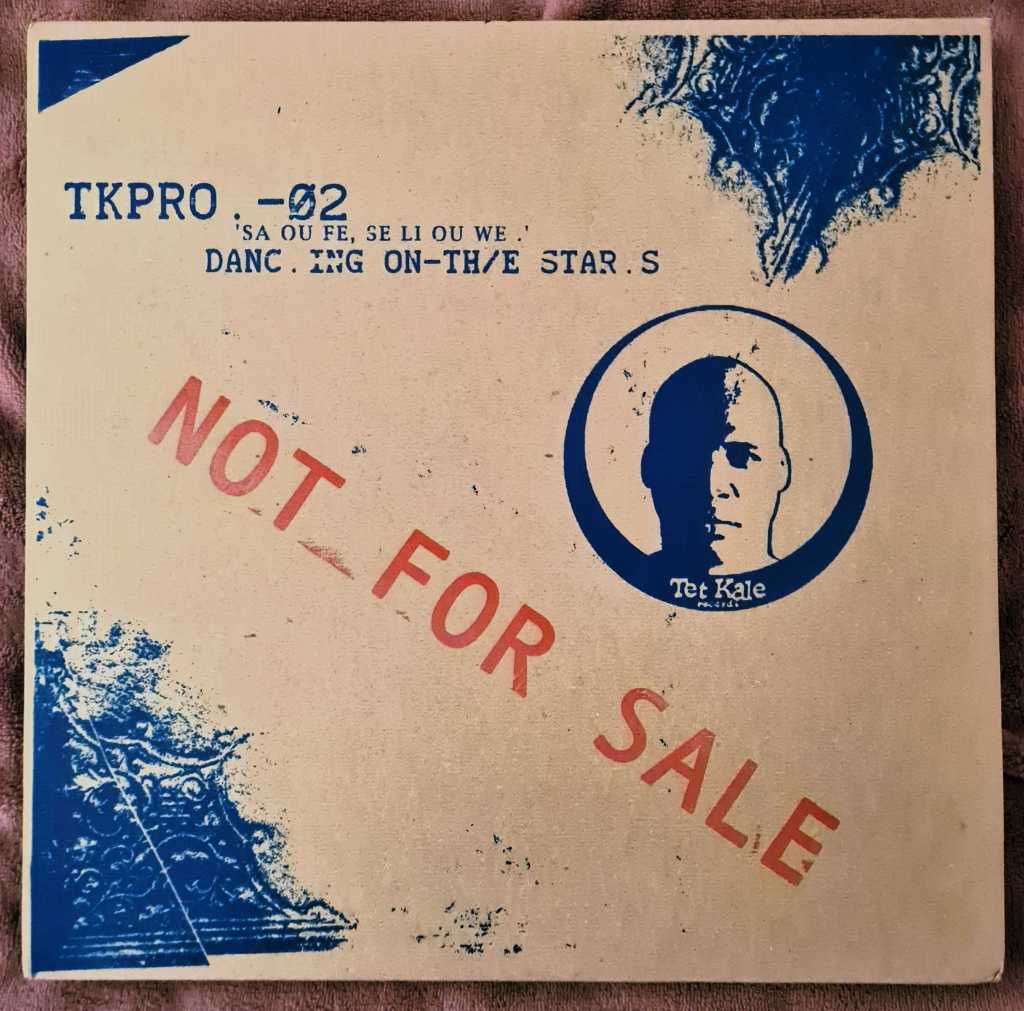
Jephté Guillaume set up Tet Kale in 2000. The imprint has released energetic and uplifting music, distinctively flavored with Haitian culture, drums and spirits. This is most definitely Spiritual House, but a dark and vivid take on the experience. Music created through life experience. Darkness, struggle and a search for the light. Jephté Guillaume was born in Haiti and brought up in Brooklyn, after moving there during childhood. In the House music world, he made his name as a producer and multi-instrumentalist during the 1990s. During this time, he was a key artist on Joe Claussell’s Spiritual Life Music. On this imprint, he released classics like Ibo Le Le, The Prayer (Priyè-a) and Lakou-a. The Acoustic version of The Prayer is one of the most celebrated records on the label. The singles were compiled alongside other material on the stunning Voyage of Dreams long player. This album was remarkable for its musical content and lyrics, which were written in Jephté’s native tongue. Guillame joined forces with Claussell for classics like Agora E Seu Tempo and Guillaume has credits on many other SLM records and Claussell remixes of that period. SLM was where many listeners first knowingly heard Jephté, but prior to this, he released the powerful Onè Respè on Kaleidiascope Records in 1994. But this was not the start of his career. Jephté was a member of the early 1990s Deep House outfit, N.Y.T.C, and Haitian outfit Rara Machine. He even has credits on records by mid 1980s Electropop outfit Trixxx. His skills as a bassist and instrumentalist led to live work with everyone from Destiny’s Child to Slick Rick. Here we will focus on his production work for Tet Kale.

Tet Kale began in 2000 with Yurai’s fantastic Love Light (Limyè Lanmou). Championed by the likes of Dimitri From Paris and massive at Body & Soul, this beautiful song features positive vocals from the Japanese singer over a multi-layered musical backing. It is one of the brightest records produced by Guillaume and it positively shines with striding brass and textured percussion. There are five mixes, including a deeper Alternative Vokal and the incredibly dramatic Ayitian Mambo Dubb. Yurai herself sums up the sentiment of the record perfectly on the sleeve notes, “”Love Light” literally turned on the light for me, into a place where I find great love and peace”. This was followed by Wesley Alexander’s Falling For You. Demonstrative acoustic guitars back Alexander’s lovestruck vocals on this track. If Love Light was a full on Spiritual House banger, Falling For You was somewhere between Deep House and Nu Soul. This record was co-produced by Jared Dietch, who readers may remember from the D’Jima Project record mentioned in the Life Line Records profile. The main version is backed by a playful Falling Synth version and the Tet Kale Afro Guitar mix, where the guitars are more pronounced and demonstrative synths play late on. There is also an acapella and a slightly more uptempo ‘Alternative Vokal’, where the percussive elements are stronger.

The third record was a reissue of a record that previously came out on Life Line in 1999. This was Jephté Guillaume Presents Jean Claude Lamarre’s Rhythm Of The Rain. Jean Claude La Marre is a NY based Haitian American Actor and Director. Both the Tet Kale and Life Line pressings of this record seem to contain exactly the same music. The Vokal Rain version is in a similar buoyant style to Guillaume’s work on Spiritual Life Music, with questioning vocals from Lamarre and full on guitar work. The Akoustik Rain version employs a flute and more relaxed guitars to great effect. The subject of the record is cultural erosion. It tells how capitalist media uses advertising to tell people how to think and behave, as well as what to buy. Here’s a particularly poignant extract from the sleeve notes “Everywhere you look, everyday, our brain is being pounded into making a conclusion – manipulated into buying an idea or a product. So much it seems, that this constant assault on our senses reminded me of RAINDROPS hitting the pavement – constant and rhythmic…Eventually as the rain downpours, we become numbed to its effects”. If this was an issue in the late 1990s when this record was made, it is even more of an issue today…

Lava’s Morena (The Jephté Guillaume Remix) was next up. We have a culture clash here, as Lava is a Japanese artist who is fascinated with Brazilian music. Here, Lava’s smooth grooves are remixed to great effect by Guillaume. The Main Vokal places Jephté’s multi-textured percussion arrangement and pointed keys from regular collaborator Frederic Lasfargeas alongside those sweetly toned vocals. There are also pretty agreeable Instrumental and Dub versions, whilst Jephte’s subtle and soft Doce Morena arrangement is perhaps the pick of all four mixes. Onè Respè followed. This was a solo record by Guillaume that originally came out on Newark’s Kaleidiascope Records in 1994. The reissue on Tet Kale seems to have exactly the same music as the original issue. The lead Tèt Kalé Flavor Mix features layered afroid percussion and powerful vocals that are both chanted and sung. The lengthy YaWè Mix is the pick with its demonstrative flute work, rolling bass and spirited vocals. Next on the imprint was Jephté Guillaume Presents Eddie-f’s Revelation (Part 1). It is an energizing effort with French vocals that are presumably provided by Eddie and his backing singers. There is also cool guitar work and a particularly spirited flute. Jephte’s Djembeflute Jam Session on the B Side is a mindblowing instrumental version. Sturdier in nature, this deeper than the deep mix takes its strength from live percussion, a revolving bassline and strong flute work. Revelation was released as TK2007-1, but it did not make it past the white label promo stage. Copies still remain cheap and abundant at the time of writing.

Tet Kale switched things up with Jephté Guillaume Presents Erol Josué’s Papa Loko. It is a driving effort from Jephté and Haitian Priest Erol Josué that features pointed brass, energetic drums and expressive vocals. There are two versions, which both clock in at an epic fourteen minutes. Jephté’s Extended Loko Vokal is backed by the more instrument focused You Can’t Steal Papa Loko’s Thunder version. In case you are wondering who Papa Loko is, the sleeve notes tell us “Papa Loko is a Spirit who represents the presence of justice within this world. He is the guardian force of every Vodou priest and priestess…When you hear thundering, you are hearing Papa Loko speak!”. The next record on the label was a different type of cultural collaboration, with vocals sung in German. Berlin based soprano Wiltrud Weber joined Jephté Guillaume for the singular Blue And Deep. Charged brass and strong flutes back Weber’s exquisite tones incredibly well. We must really credit Guillaume’s arrangement for making this work. Jephté’s Blue Deepstrumental extends the sentiment further on an equally enthralling ride. Jephté Guillaume and Wiltrud Weber followed this up with another single entitled Déjà Vue. Here, Weber sings in English over a melancholic string arrangement, sprightly guitars and a booming bassline. There is a shapely Déjà Vuestrumental and a short Tet Kale Sans Tyas version. The instrumental has a poignant groove and could easily be Jephté Guillaume take on the whole driving Deep Tech of Sydenham et al. If that wasn’t enough, Weber and Guillaume released a whole CD album of material entitled Blue And Deep, in association with Germany’s Zeppelin Recordings.
After this, Jephté Guillaume linked up with well known Japanese singer Monday Michiru for the wonderful Dancing On The Stars. This is a real rousing record in the same mould as the first record on the imprint, Yurai’s Lovelight. Positive and full of brass crescendos and jazzy grooving alongside Michiru’s life giving vocals. There is also a brasstastic instrumental. Around the time of this record in 2010, extremely limited promos of Déjà Vue and Dancing On The Stars surfaced. Both were single sided and featured Ambient versions of the songs. According to Discogs, there were only 100 of each pressed and they were sold exclusively at Dope Jams in NY. In 2017, Tet Kale released Jephte Guillaume Presents Sean Schulich’s sensational version of The World Is A Ghetto. The skippy keys and textured flute work wonders on this cover alongside Schulich falsetto type vocals. Jephte’s Extended Ghetto Dub is an impressive flute focused counterpart.
Tet Kale has released a diverse collection of music. The label has shown Jephté Guillaume’s singular vision as a producer and as an artist. Guillaume has shown his ability to create uplifting records with singers such as Yurai, Monday Michiru and Wiltrud Weber. We have also seen Guillaume delve deeply into his Haitian roots on solo records and those with Erol Josué and Jean Claude Lamarre. This has brought forth the culture and spirituality of Haiti, as filtered through Guillaume’s House sound. Tet Kale seems to have taken a pause since 2017. However, Jephté Guillaume has not been quiet. He released the powerful Baba M’fa Njika on Shelter in 2018 with Diephuis and Barbara Gwanmesia. The same year, Jephté joined forces with Arno E Mathieu for the incredibly heavy Ekzilé that appeared via Arno’s Clima imprint. He provided guitar work Antonio Ocasio’s Baleka, which featured vocals from Toshi. This surfaced on Tribal Winds in 2022. In 2024, the pleading Sove You (Save Them) arrived on Sacred Rhythm Music. This record features vocals and instrumentation by Jephté’s brother, Duke Guillaume. To this day, Jephté Guillaume continues to be involved with a range of musical projects. Hopefully one day, there will be a new project on Tet Kale! Until then, the back catalogue is well worth investigating.
Tet Kale Discogs
Freer Sounds Tet Kale Playlist

